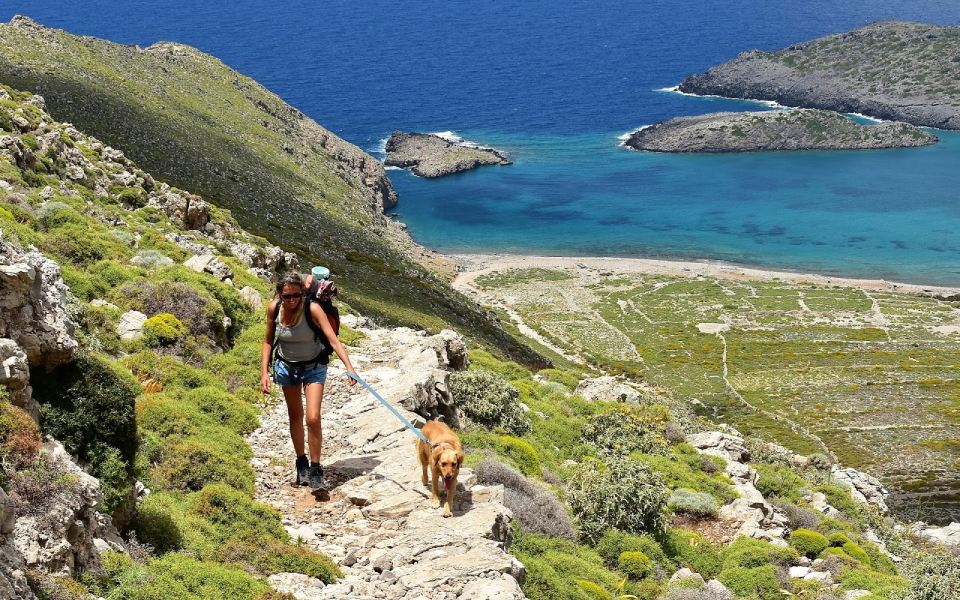Just from the book’s title, one can see that Wild Abandon: A Journey to the Deserted Places of the Dodecanese is not your usual Hellenophile-penned tribute to Greece, just like Jennifer Barclay (Falling in Honey, An Octopus in my Ouzo) is not your ordinary travel writer.
After being raised in a village in Britain’s Pennines, Barclay went on to study at Oxford and travel extensively. Since 2011, she has permanently resided on Tilos.
She and her four-legged friend Lisa dedicated five years of their lives to scouring the Dodecanese in search of hidden treasures in these touristed isles, buried under the dusts of time: ghost villages, abandoned buildings and remote landscapes of untouched beauty are the places that draw her, while her protagonists are authentic islanders who keep memories alive, along with a vanishing way of life.
“This project of exploring the abandoned places of the Dodecanese started with a thought I had while on Nisyros in spring 2015, when I first saw its almost deserted villages on the rim of the volcano, and the churches built by islanders who had emigrated to America,” she writes. “I began thinking about how much changed, and how dramatically, over the course of a century in most cases. I set out to learn more by exploring different islands, and revisiting places I already knew to look deeper.”
This bizarre and frightening summer, given the profound impacts the pandemic is expected to have on our way of life, Barclay’s solitary wanderings, her constant contact with nature, her teleworking, and her attachment to simplicity and freedom render her book exceptionally timely.
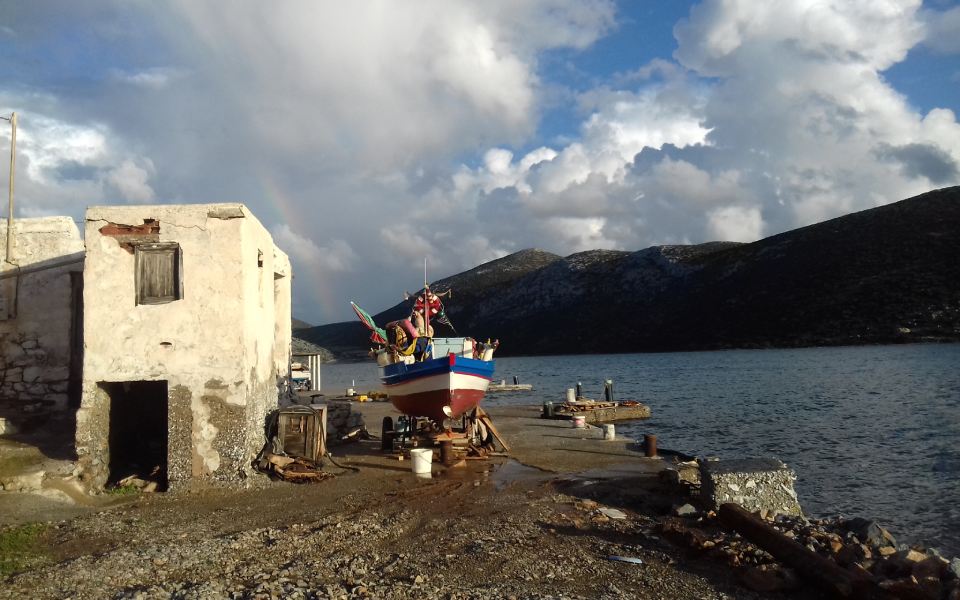
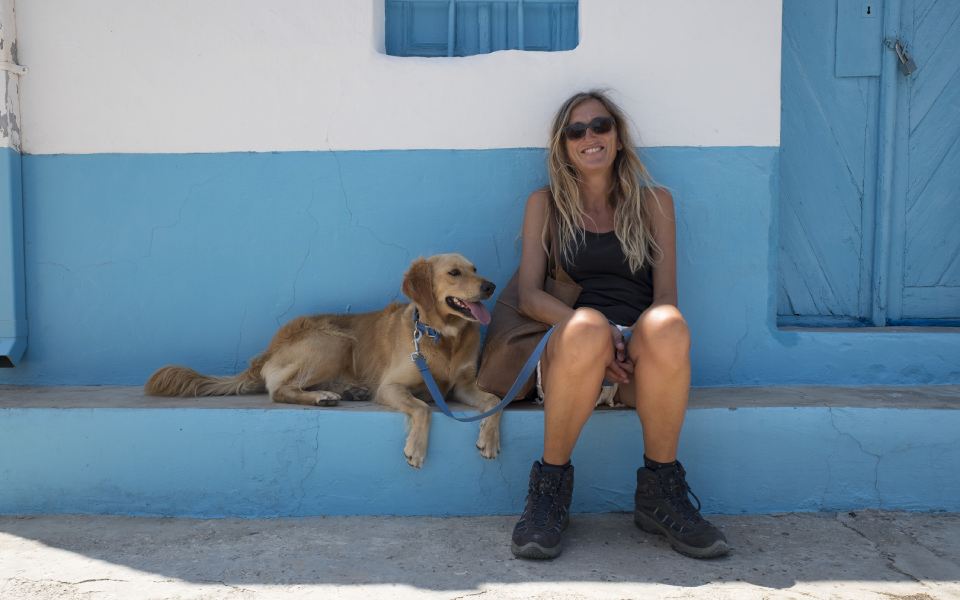
© David Bouslayev
What is so special about the Dodecanese, to a British author’s eyes?
I love the rugged, rocky hills covered with rough garrigue of mastic and sage, oregano and thyme; the emptiness, being on a beach and seeing no buildings; the sense of a remoteness at the edge of Europe, where nature is boss and community feels more important than what’s happening in the rest of the world. A century ago, these quiet backwaters were often great centers of commerce and farming, supporting many thousands of people, and after the populations dropped dramatically, the traces of the islands’ history were often not built over but simply left behind on the landscape.
Are there any particular characteristics of the people of these islands you’ve met through the years that resonate with you?
In these little outposts of eccentricity and nonconformity, the people I like to meet and write about have often had extraordinary years traveling on ships around the world; they are proud to live in places with no crime, are resourceful and do what they can to survive (whether it’s juggling three jobs, or breaking a few rules to get things done because otherwise they wouldn’t get done at all), are content with clean air and having a bit of land to grow some food and keep some chickens, would prefer a pickup truck to a fancy car, have very little need for the latest fashion or gadget but appreciate the importance of a good meal, good company and a day of fishing.
My first years of living year-round on Tilos had already changed me – I called it “living small and thinking big”.
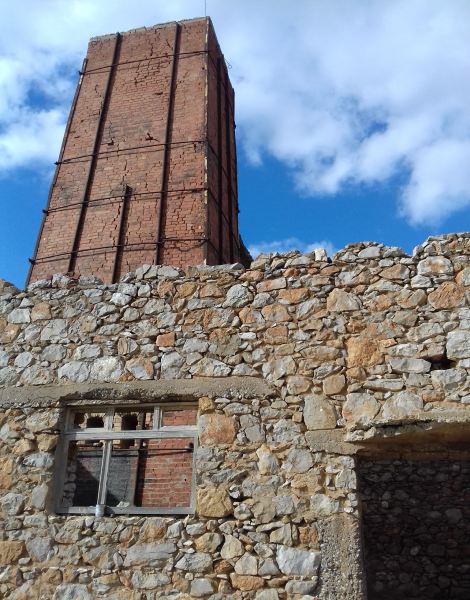
© Jennifer Barclay
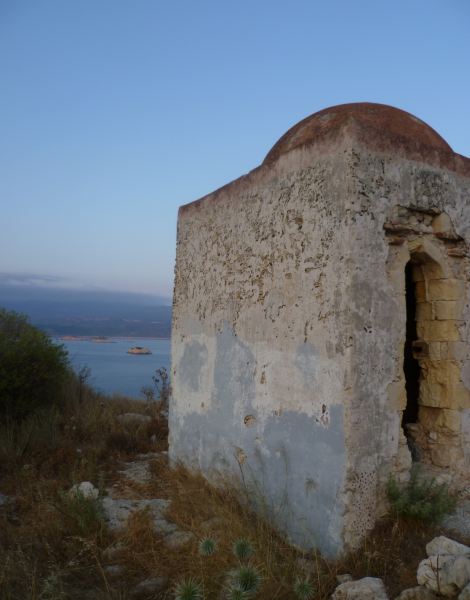
© Jennifer Barclay
The places and stories you describe are a far cry from the over-promoted, touristic side of the more popular islands. How do you feel about the way some of them have been developed tourism-wise?
It’s not for me to judge – mass tourism in Rhodes and Kos supplied me with cheap flights here years ago – but personally I prefer places not dominated by hotels and tourist paraphernalia. In recent years I’ve noticed a quiet protest among local people against the big all-inclusive hotels, the over-tourism that takes their island away – though tourism sometimes provides the only available jobs – and the sunbeds that have taken over the beaches. However, a few months of small-scale summer tourism can support a winter of farming and charcoal-making, so it’s a question of balance. Tilos, where I live, has got it about right. Also Arki, the smallest inhabited island in the north of the Dodecanese that is serviced by regular ferries, has just a few tavernas and rooms that provide a market for fishermen and cheesemakers.
More than a travelogue, your book is the chronicle of a deeply personal journey. Has this 5-year long exploration revealed to you something about yourself, or even changed you in any way?
My first years of living year-round on Tilos had already changed me – in my previous book I called it “living small and thinking big”. After I became captivated by the idea of exploring the Dodecanese through its abandoned places, I started hiking and wild camping and swimming well off the beaten track, obsessed with the stones left behind on the landscape, poking my nose into ruined houses with hand-carved wood and bamboo ceilings… And I’ve found that the more wild and remote my experience, the more I can handle and crave. Sometimes I’ve scared myself by pushing too far, such as on a long walk in the empty hinterland of Halki when I was saved by an old cistern, but I’m happy to get a few scratches if it means discovering somewhere amazing.
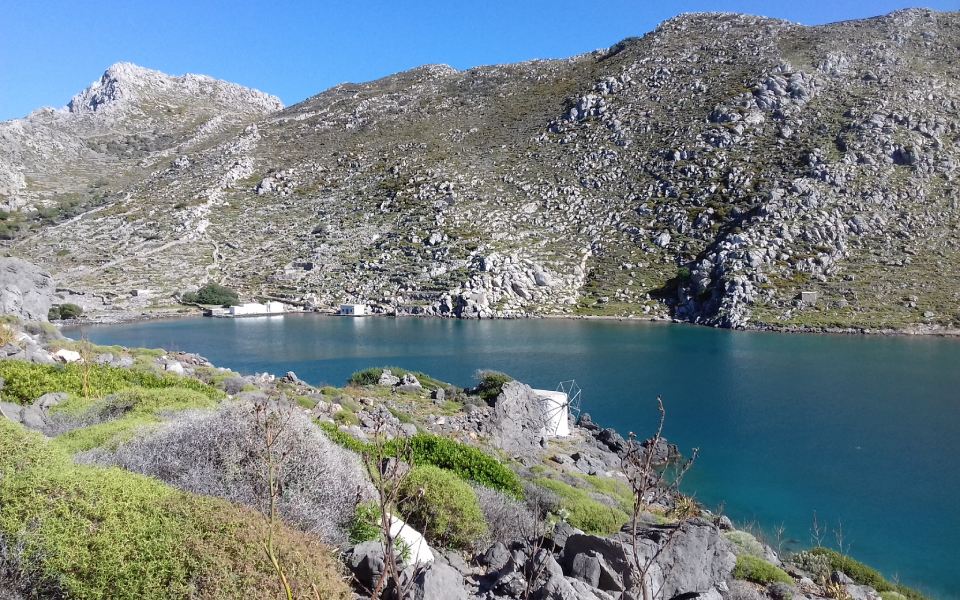
© Jennifer Barclay
Can you share with us the most moving experience from your book?
I was constantly touched by the details I found: the humble cemetery behind the cottages built for Muslim Cretan fishermen on Rhodes; in a dilapidated house in Kos, an empty trunk with a handwritten address in New York.
I was profoundly moved by the remote village of Olympos in Karpathos, clinging to its traditional way of life; where I found myself welcomed in to a community of hard-working women who help one another because they have always had to; where Kalliopi showed me the photo in her kafeneio of a group of men including her husband playing music together, and indicated with a flick of her hand that they were all now dead.
The most moving encounter, though, was with Sami in the deserted Jewish quarter of Rhodes Old Town, who told me how 1,673 people including his family were forced onto ships and taken to Auschwitz-Birkenau.
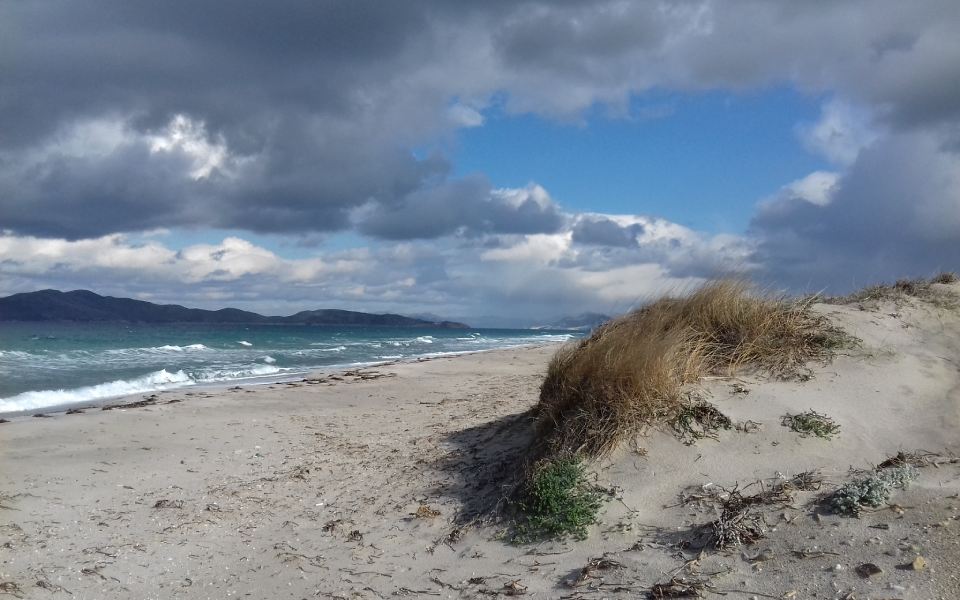
© Jennifer Barclay
Exploring abandoned places full of unknown stories, immersing yourself in the wild, might seem especially relevant during this weird, frightening summer of the pandemic. Does this make your book more poignant? Do you think that more people will be inspired to follow in your footsteps?
I’ve always been drawn to little-known places, and I hope the book shows the richness of these islands and might encourage people to travel outside the busy tourist months, either following in my footsteps or finding their own special places. I’ve only scratched the surface and there is so much more. I think in this weird year of the pandemic, it gives perspective to be reminded of the truly challenging things recent generations went through, from occupation to poverty to war to leaving their homes behind and traveling to the other side of the world, and how they coped.
You write: “Progress in much of the world is about acquiring more, but for some of us there’s a liberation in having less, living without television and crowds and traffic jams, pointless noise and tiring time in transit just waiting.” It looks like an image from the future. Do you feel that this trial is an opportunity to reconsider our approach towards life?
Or an image from the past… Many of us are drawn to places like Tilos because there’s a simplicity lost elsewhere. I decided to experiment with working from home here ten years ago and am constantly grateful for the freedom and fulfillment I have, living in a stunning place, making the most of the outdoors and always learning. Although 2020 has been hideous for many people and the economic repercussions will be with us for years, a shake-up shows what is important in life and I hope some people will grasp opportunities to make changes.
I hope the book shows the richness of these islands and might encourage people to travel outside the busy tourist months.

© Jennifer Barclay
What are the most essential items you carry in your wanderings?
A bowl for my dog, a sleeping bag for late ferries, and of course a notebook and pen.
What are the 5 spots you would recommend to someone who wishes to explore the Dodecanese as you did?
- The abandoned settlements of Mikro Horio and Gera on Tilos
- Volcanic Nisyros, the semi-abandoned village of Emborio and empty buildings of Pantelidis Baths and Loutra
- The harbour of Vathy in Astypalea with its lime kiln and deserted houses
- The villa for Mussolini and the old Fascist headquarters at Eleousa, Rhodes
- Olympos in the north of Karpathos, with a walk to Tristomo
What’s next for you? Another book of exploration?
I’m not sure yet, but I know I’ll continue exploring and writing about the islands.

